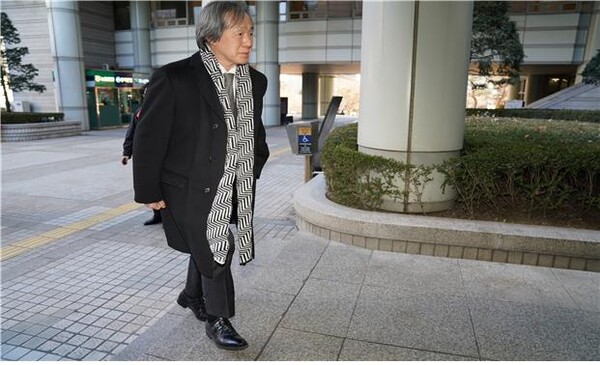The National Health Insurance Service (NHIS), which lost the first round of the tobacco lawsuit, aims to win the appeal trial by supplementing evidence.
The state health insurance said the 11th round of arguments in the ongoing tobacco lawsuit appeal against tobacco companies KT&G, Philip Morris Korea, and BAT Korea was held on Wednesday at Courtroom 583 of the Seoul High Court's East Hall.
In this pleading, the two sides argued on the issue of a causal relationship between smoking and the development of lung and laryngeal cancer.

The core issues are the epidemiological causal relationship between smoking and the development of lung cancer, the determination of the individual causal relationship of the litigants, and whether to recognize the causal relationship between the defendant's misconduct and the litigants' development of lung cancer.
The issue of causation was discussed several times in the tobacco lawsuit's first trial, but it was the first substantive argument in the appeals court.
NHIS argued that the causal relationship between smoking and the development of lung and laryngeal cancer, which the first trial court presumed, should be recognized based on the results of epidemiological studies.
It added that the causal relationship of each of the 3,465 litigants should also be considered as proven based on the extensive data it had submitted, including medical records.
The agency also emphasized that the causal relationship should be recognized, especially for those with no risk factors, by reviewing the history of lung disease, family history, alcohol consumption, and occupational factors in the medical records of the litigants.
The agency made these arguments in response to the lower court's ruling in the first trial, which said, “Even if the causal relationship between smoking and cancer is recognized, it is necessary to prove other individual circumstances, such as changes in disease status, lifestyle, and family history in addition to smoking history.”
At the appeals court, the NHIS countered this ruling through objective records.
In addition, NHIS submitted the latest research papers, expert opinions, statements from researchers to prove the reliability and objectivity of qualitative studies of heavy smokers, and statements from smoking victims as evidence.
“It has been proven scientifically and medically that tobacco is a direct cause of respiratory diseases such as lung cancer, and even if it is not a direct cause, tobacco is a sufficient contributing factor that promotes the occurrence and aggravation of diseases, so tobacco companies should be held minimally responsible,” NHIS President Jung Ki-suck said.
Jung continued, “We have classified and submitted 1,467 people who have no risk factors for cancer other than smoking to prove the first trial verdict further. This case is based on sufficient epidemiological and medical evidence, and each individual's case should be recognized as a belated recognition of Korea as a medically advanced country.”
In conclusion, the NHIS head said, “Tobacco lawsuits are filed to prevent the leakage of health insurance funds due to smoking-related diseases while holding social responsibility for the harmful effects of smoking and promoting public health. Please continue to pay attention to these lawsuits so they can be filed with the public.”
The lawsuit targets three tobacco companies -- KT&G, Philip Morris Korea, BAT Korea -- and manufacturers to make them compensate 53.3 billion won ($36.6 million) paid by NHIS in reimbursements from 2003 to 2012 to 3,465 patients diagnosed with lung and larynx cancer, which are highly correlated with smoking after 20 or 30 years of smoking.
Related articles
- Lawmakers slam government for misusing health insurance funds in flawed health reform plan
- Korea faces youth health crisis as adolescent substance use rises, exercise declines
- Essential care reimbursement will turn health insurance finance into a deficit: NHIS head
- Doctors urge court to hold tobacco firms accountable ahead of NHIS appeal trial
- WHO backs Korea’s $38 mil. tobacco lawsuit as Big Tobacco faces global pressure

